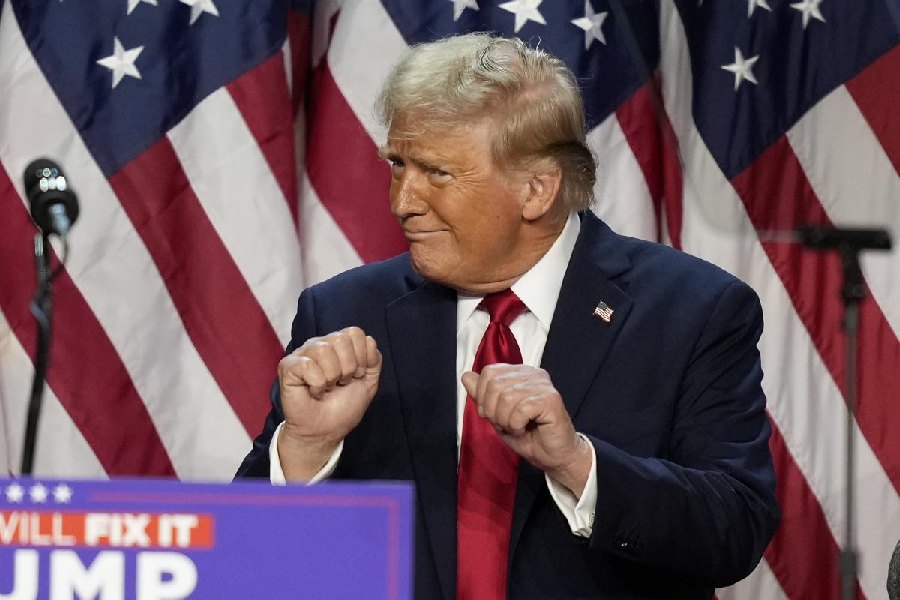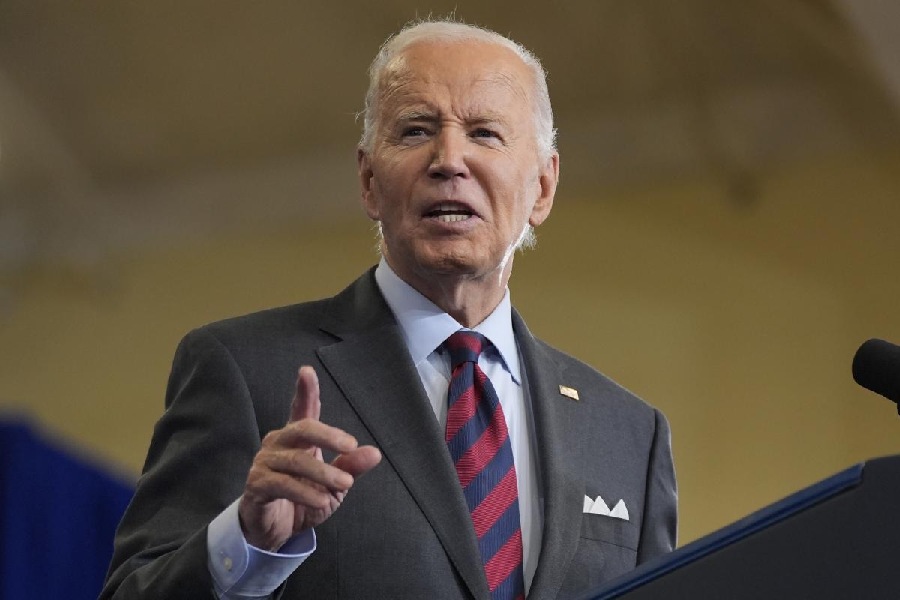With a resounding victory in the US presidential election, Donald Trump can now claim a sweeping mandate to implement his agenda, both foreign and domestic.
Crucially, the result shows you should never bet against self-interest: either for politicians, or for American voters prepared to disregard the most flawed of all characters in the hope he will “fix” their problems.
The guardrails that constrained Trump’s first term – a hostile Senate, opponents in the Republican Party and a public service devoted to serve the nation rather than an individual – have either been swept away, or will likely soon be bent to his will.
The global implications of a confident and unfettered Trump 2.0 will depend very much on what foreign policy path he charts and whom he decides to appoint to key positions.
Among those, we then need to watch who is selected to do his bidding and who will replace them when they inevitably fall out of favour. Early lists of potential appointees include: - Marco Rubio and Richard Grenell, who have been mentioned as potential secretary of state -Kash Patel, mooted as CIA director -Mike Pompeo, the former secretary of state and CIA director during Trump’s first term in office, who may end up at the Pentagon as defence secretary.
Even Mike Flynn, Trump’s first national security adviser, who resigned just 22 days into his tenure after lying about contacts with Russia’s ambassador to the US, has been mentioned in discussions about senior roles.
So, too, has the self-styled strategic policy expert Elbridge Colby, a former US Defense Department official.
Trump will demand unswerving loyalty from his appointees, while claiming all the credit for their work. But, as he ages, he is also likely to rely heavily on them to take the lead on strategic policy direction.
With that in mind, here are three possible paths a Trump administration might take on the world stage.
1) America First, with compromises
Having trumpeted his credentials as a peacemaker, it is possible Trump returns the US to a position of isolationism and exceptionalism, essentially being a friend and enemy to no one.
That could mean either withdrawing completely from NATO, or making US security assistance so conditional on transatlantic fealty that Europe is essentially captive to his whims.
It could also mean: -drawing down support for US alliances in Asia and the Pacific -demanding ever-higher levels of defence spending from security partners -running a critical eye over any deal that might require the US to commit the lion’s share of resources, or reduce its own military capabilities.
Australia, for instance, will be keen to extract assurances of continued White House support for the AUKUS partnership. This involves Australia buying several nuclear-powered submarines in the early 2030s, in addition to technology sharing between the US and United Kingdom.
This deal is almost certain to be scrutinised by the Trump administration, despite strong support from Republicans in the Congress and Senate.
However, Trump would likely need to make trade-offs to achieve a more isolationist stance.
First, a grand bargain with Russia will be necessary. This is not simply because of Trump’s admiration for Vladimir Putin, but because he has promised to end the war in Ukraine swiftly.
Although Russian ultranationalists are gleefully crowing about Trump’s victory, the Biden administration is scrambling to get US$6 billion (A$9 billion) in military assistance to Kyiv before the handover over power in January. Hence, Trump can’t immediately count on Ukrainian weakness as a precursor to a peace settlement.
Second, in the medium term, it may require a bargain with China. An endless trade war based on tit-for-tat tariffs will drive inflation higher in the US and bite into Trump’s blue-collar, rural voting base.
2) A muscular pivot to Asia
Repeated calls by Trump’s national security loyalists for a confrontational approach to China, coupled to his frustration with America’s European allies, who he believes are free riding on US defence spending, may lead him to pivot to Asia instead.
However, this would entail an even deeper bargain with Moscow. It would have to not only include a deal to end the Ukraine war, but also a more holistic agreement to downscale US-Russian confrontation.
While it is by no means guaranteed Putin would be amenable to this, it would free up US resources to confront China militarily, as well as economically. Trump’s new administration will include many China hawks like Trump loyalist Colby, who have been arguing for years that Beijing poses the gravest threat to US power.
But this pathway will require a firm commitment by Trump (not his strength). It will also require more concrete US security guarantees to its allies in the Asia-Pacific region – in exchange for their commitment to not only help constrain China, but be prepared to participate in a potential conflict.
If Trump does abandon America’s NATO allies, it remains to be seen how even its closest Asian partners would regard his commitment to their security or his ability to manage crises in the region.
3) Peace through strength
A third option would be for Trump to channel former US President Ronald Reagan, seeking to restore and maintain global US primacy. America would lead, but do so pragmatically – and with allies whose interests aligned with its own.
This would be a considerable undertaking, not to mention a costly one. It would require hefty military spending, investment in research and development, re‑establishing American dominance in critical technologies, and finding alternative solutions to supply chains currently dominated by China.
It would also mean doubling down on strategic competition with Beijing, and being prepared to substantially arm proxies (and not just allies) to put pressure on China.
But even this would have limits. As Trump has repeatedly demonstrated, he regards national interests and personal ones as essentially the same thing.
A desire to give Israel a completely free hand, for instance, will have to be moderated by his extensive ties to Saudi Arabia, although Riyadh would certainly approve of Trump’s desire to crack down hard on Iran.
And how Trump deals with dictators will also come under scrutiny.
In the past, his open admiration for Putin, Chinese leader Xi Jinping and North Korean dictator Kim Jong Un has given America’s partners pause. It has also constrained Trump from achieving his objectives.
Chaos and change
Either one of these pathways will lead to instability and tough choices for America’s partners.
Putin will likely make Trump earn any peace over Ukraine by simply refusing to negotiate until the White House puts sufficient pressure on Kyiv to capitulate. And peace on Russian terms will be fragile, entail painful Ukrainian concessions, spawn bitter insurgent campaigns and critically weaken European security.
Europe now finds itself at a crossroads. It finally has to confront the prospect of being responsible for its own security and defence against a reinvigorated Russia. It will now have to work quickly, spend far more on defence and overcome its crippling institutional inertia.
This will also accelerate the new European security order that is already taking shape, with Poland, the Baltic and Nordic states, and the UK as the main bulwarks against Russia.
In Asia and the Pacific, questions about America’s commitment to security guarantees will drive local arms races and make nuclear proliferation more likely. Countries like Japan, South Korea, Australia and the Philippines will also need to ramp up efforts to work together without the US. That will be easier for some than others.
The upshot?
Trust, common values and a commitment to a stable rules-based order are what have sustained and deepened America’s security partnerships.
At the very least, Trump 2.0 will make most US allies wary for the foreseeable future. But the greatest tragedy of all would be if he proceeds with his promised campaign of revenge against internal enemies, deporting millions and using his mandate to create a Potemkin democracy.
I fervently hope that doesn’t happen. But then again, you should never bet against self-interest.
The Conversation
Except for the headline, this story has not been edited by The Telegraph Online staff and has been published from a syndicated feed.












